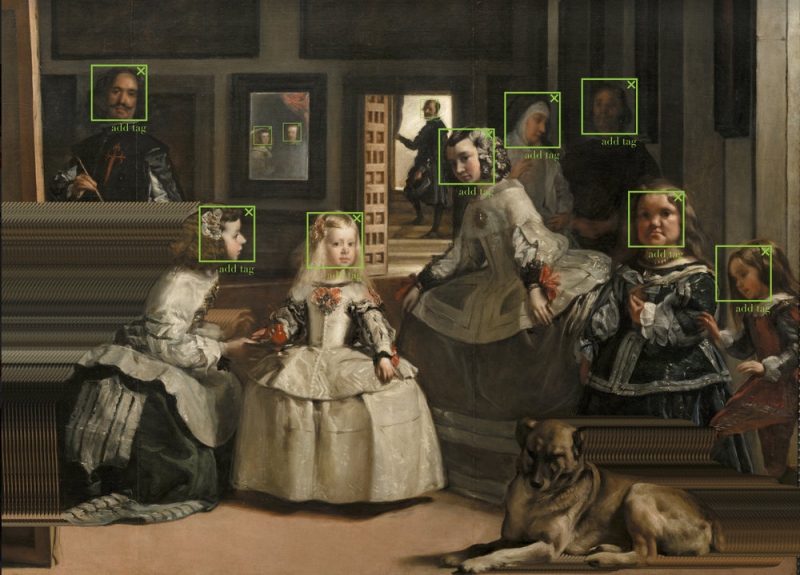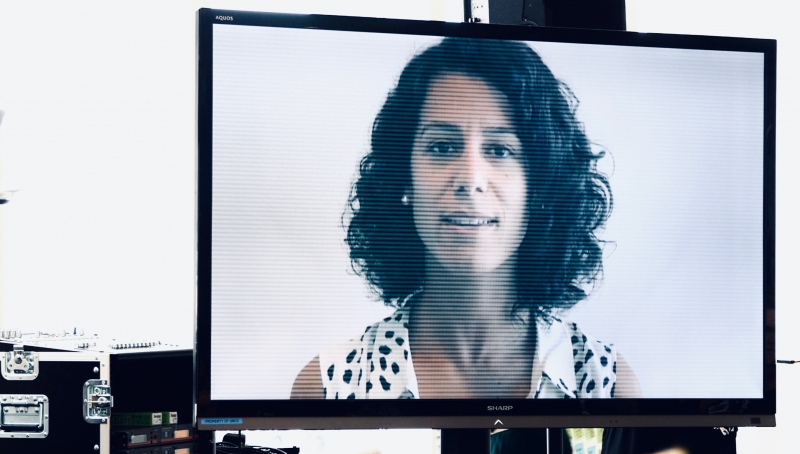
Presented courses are based on deep research and design work in the fields of futurescaping, ethics and climate, together with techniques of prototyping, data visualisation, storytelling, and exhibition design.
UX & Artificial Intelligence workshop
The design thinking course with a focus on AI tools and machine vision was designed to provide participants with the necessary skills and knowledge to understand and address user experience (UX) challenges associated with AI-infused products. The course guides students through a comprehensive design process, from user research to concept creation and ethical reflection.
The primary objective is to develop a first-hand understanding of how users interact with AI-infused products, including aspects such as constructing mental models of AI, dealing with AI errors, and considering privacy and ethical issues related to machine vision within their specific usage context.
As part of the course participants focus on developing and testing their concepts that leverage Machine Learning at their core. They learn how to prototype with machine learning, experimenting with the new ai tools in their design process.
By combining user research, concept development, prototyping, and ethical reflection, this design thinking course equips participants with a deep understanding of the challenges and opportunities presented by AI-infused products with a specific focus on machine vision. It empowers them to approach the design process with a user-centered mindset and develop innovative, ethical, and impactful solutions in the realm of AI and machine.
Main Topics:
Machine Vision
Ethics
Artificial Intelligence
Systems Thinking
Prototyping
Service Des


Designing Across Biological Scales workshop
At the point in our global ecological crisis, the survival of humanity will require a fundamental shift in our attitude toward nature: from finding out how we can dominate and manipulate nature to how we can learn from it. This course concentrates on finding reconnection with Nature of which we are part. Participants get to explore design as a scientific discipline, a creative method, a strategy for our survival and a movement with a distinctive character of sustainability. It captures imagination in a pragmatic and culturally transforming way. Together we search for sustainable and practical and experimental solutions to problems of daily life by emulating the countless recipes and strategies that nature has developed (bacteria, crustaceans, birds, plants, forests, etc.) in 3.8 billion years of evolution. This course involves an active search, a conscious foresight; it does not simply extract from nature, it implies learning from it. We as human beings learn how to not be simply observers of nature, as if we were looking at it from a bubble. We learn the basics - that we are 100% nature. The course is inspired by multispecies approach where the human is removed from being in the anthropocentric role. It looks for more practical applications and answers based on the sustainable, effective and even aesthetically attractive solutions that nature developed a long time ago. Together we learn and create systems, products and thought provoking projects highly inspired by the principles of nature. We look into ideas that spark a discussion on how to cultivate energy efficiency, production of limiting resources and sustainability in general. Ethics and future thinking is a strong core of that course.
Main Topics:
Nature Ethics
Genetic Modification
Life Sciences
Biodesign
System Thinking
Multispecies
Anthropocen
Antidisciplinary


Designing Ethical Futures workshop
Ethics comes up when things go down. During the Designing Ethical Futures course we explore ethical theories to reflect upon what we design and why. We engage with the methods of speculative design to envision the unexpected consequences of new technology and learn how to create experiences that bring to life ethical theories.
As more and more products become connected – to each other, to us, to their environments – more and more data are being shared, stored and processed algorithmically. In this workshop, we use three core elements: ethics, futurescaping and new technology to spark our inspiration and ground our creative prototyping. Participants create experiences that immerse people into possible futures, using ethical theories to question those futures and speculative design to rethink how we may live with new technology.
This workshop has an experimental approach. We focus on building thought-provoking projects that explore the role of ethics in the creation process. The class welcomes all participants, regardless of age or educational background.
Main Topics:
The future of memory
Cultural and technological forms of memory
Ethical theories, applied ethics
Surveillance economy
Bias, machine learning
Data flows, system mapping
Futurescaping, speculative design

